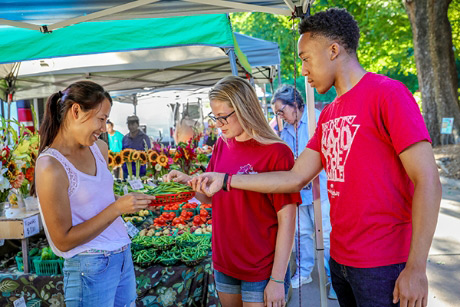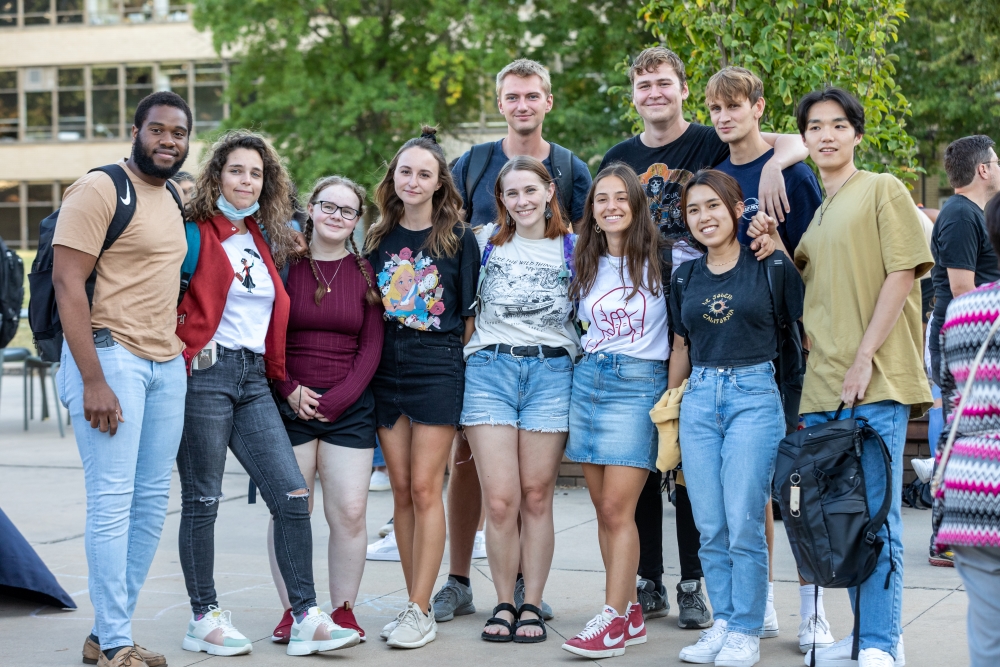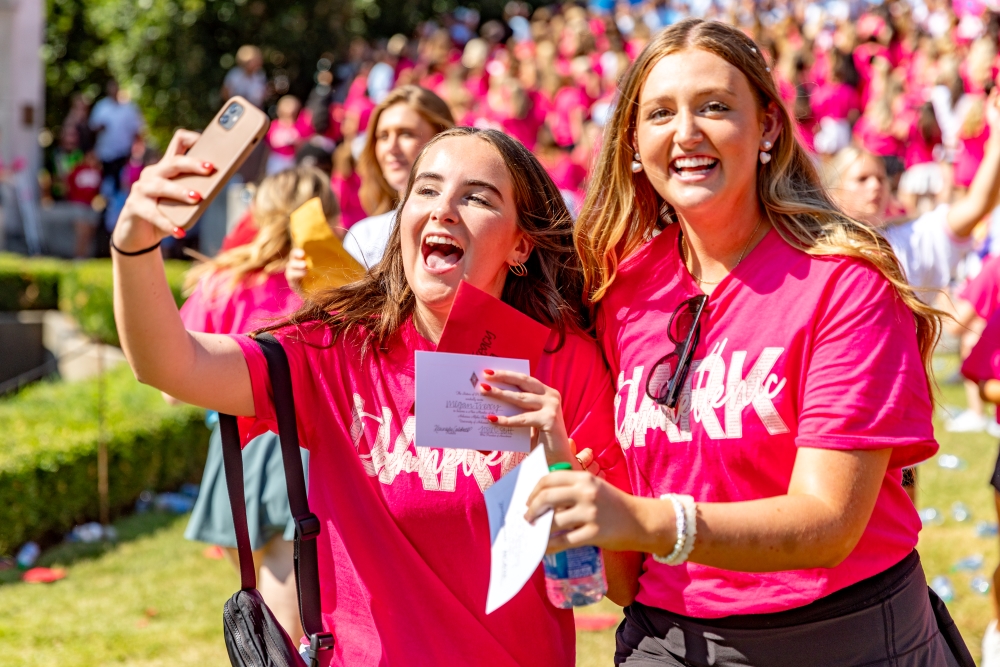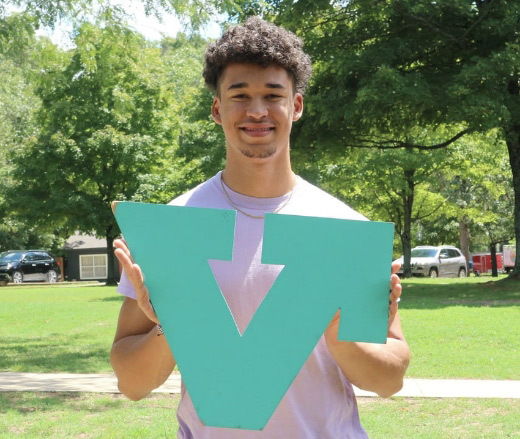Campus Life by the Numbers
The University of Arkansas offers a vibrant campus life that is culturally, intellectually and socially enriching.
Registered student organizations: From special interests to professional groups.
Greek organizations: Social organizations that facilitate academic, cultural, and social development of students.
Best Places to Live in the U.S.: by U.S. News & World Report.
Campus Groups and Resources

Office of Student Activities
Provides an environment for involvement and collaboration with programs such as Registered Student Organizations, University Programs and Associated Student Government.

Associated Student Government
Supports campus programs and initiatives while allocating funds to Registered Student Organizations each year. The three branches, Executive, Legislative, and Judicial, strive for the betterment of the organization and the University as a whole.

Multicultural Center
The Multicultural Center exists to enhance the University of Arkansas academic experience by preparing students for life in a diverse society.

University Recreation
Explore our facilities, outdoor equipment checkout, and club and intramural sports available on-campus.

Greek Life
Social organizations that facilitate academic, cultural, moral, and social development of students at the university.

Volunteer
Give your time, skills, and even sweat to help neighbors near and far. Work in our campus food pantry or help lead relief efforts to communities in need.
Title IX
Title IX protects people from discrimination based on sex in education programs or activities that receive Federal financial assistance.
Stay Safe
Your safety and security are the University Police department’s number one priority.
The UAPD, in partnership with the community we serve, is committed to protecting and serving the future of Arkansas and beyond by embracing the philosophy of community policing and by promoting a safe and secure environment through excellence, initiative, and integrity.
Stay Healthy
The student health facility on campus boasts a medical center, a women’s clinic, immunization and allergy treatment, psychological services and other resources to keep you focused on success.